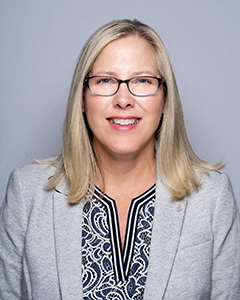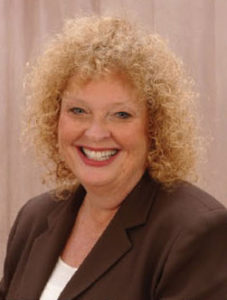1. Eliminate some belongings
As you declutter closets, drawers, cabinets, and other areas of your home such as the basement, garage, shed, or attic – you’ll find plenty of items you no longer want or use. Place each item into a toss, donate, or sell pile.
You can use the money you make from spring cleaning to pay down debt, help fund a summer vacation, or work toward meeting other financial goals.
2. Find those unused gift cards
According to Bankrate, 51 percent of U.S. adults have unused gift cards, and the average person is leaving $116 on the table, which adds up to around $15.3 billion nationwide. Put these cards in a place that you will see them and eventually use them.
3. Purge Some Paperwork
As you organize your home this spring, you might question what to do with your files full of financial documents, too. Organizing what you should keep and shredding unnecessary paperwork is key to an uncluttered, money-savvy home life.
Don’t forget to clean up your digital documents too. Update and safeguard passwords for your electronic files and mobile devices. Consider an online password manager such as LastPass or Dashlane. It’s also a good time to do a clean sweep of your email and unsubscribe from businesses that may tempt you to make impulse buys that bust your budget.
4. Improve Your Credit
Obtain your credit score from websites such as Credit Karma, Credit Sesame, or Nerd Wallet. They will offer ways to get your credit score for free. It’s essential to monitor your credit score because of its impact on your overall financial health.
Obtain all three reports at once or stagger downloading them throughout the year.
Examine reports and report any errors to the credit bureau.
Consider asking for credit line increases on credit cards to improve credit utilization. (Note: If you struggle with credit card debt, this could be a dangerous strategy to improve your credit score.)
If you won’t be applying for any new credit soon, freezing your credit may be a good idea to help protect against identity theft. Each credit bureau has directions on freezing your credit on their website and a phone number to call for assistance if needed.
5. Pay down your debt
If you have a lot of debt, make a list of each debt, how much you owe, the interest rate, monthly payment amount, and the total amount you owe. Start paying off the most expensive debt. One exception: if you have a small debt that will be eliminated within a couple months, get rid of that one first. As you eliminate a debt, take that payment and apply it to the next debt.
6. Evaluate your Taxes
Spring is also tax season, and there’s a good chance you’ve recently finished your annual tax return (or it’s at the top of your “to-do” list!) After sorting through W-2’s and 1099’s and considering your tax expenses, you’ll want to do everything you can to make sure that your earnings are working for you. See a financial advisor to find ways to grow your money and reduce taxes with your company’s retirement plan, IRA’s and other tax favored products.
7. Review Your Cash Flow and Spending
Are you struggling to stick to a budget because you’re living beyond your means or because your spending plan needs adjusting? If you haven’t carefully tracked your expenses, it can be challenging to create a realistic budget. This is a great time to evaluate your spending and find ways to save money if you work to trim your expenses. cable TV , internet, pay for tv subscriptions, gym memberships, coffee every morning and going out to eat are the most obvious places to start. and many other items may be eliminated to produce more cash flow.
8. Consolidate Your Bank Accounts
While it makes sense to have more than one bank account (checking and savings) and even use more than one lender, some people have more accounts than necessary.
Consolidating accounts may help you avoid monthly fees on accounts that require a minimum balance.
Consider setting up automatic bill payments from your bank accounts to ensure your payments arrive on time. You can also create scheduled transfers of funds between your accounts to help you meet savings goals.
9. Clean Up Your Insurance Policies
If you can’t remember the last time you reviewed your insurance documents or shopped for better rates, it’s time to dust off your policies.
Start by reviewing your auto and renters or homeowners insurance policies with your agent. Are these policies “bundled” with the same carrier? If not, you may be missing out on significant discounts offered by many insurers.
What are the deductibles on your policies? If you have enough money saved to cover a higher deductible in case you need to make a claim, it may make sense to increase deductibles to pay lower premiums.
You may want to consider an umbrella policy if you have young drivers in the family. Ask your agent for details.
The amount of life insurance you carry may also need to be increased if your family situation has changed. A growing family or a stay-at-home parenting situation are good reasons to boost coverage. Be sure to meet with a professional.
If you’ve put off buying disability insurance, Research how much sick leave you have available at your current employer and if your employee benefits package offers short- or long-term disability insurance and the coverage level. If you’re self-employed or lack a high level of coverage through work, this protection may be vital to you based on your level of savings and risk tolerance.
10. Cultivate Your Wealth
Whether you enjoy books, blog posts, podcasts, or courses – there are thousands of free and low-cost resources at your fingertips. Our suggestion is always to read multiple sources and consider the author’s expertise and how they make money before blindly following their strategy.
11. Are you Retirement Ready?
While you’re improving your financial literacy, take steps to improve your current investments, too. Are you on track to retire when you want, at the income you need? Find out! See a Financial advisor and discuss whether you need to up your 401k, Roth, or IRA contributions.
Remember to rebalance your portfolio to match your age, risk tolerance, and time to retirement.
12. Review Your Beneficiaries
If you haven’t started estate planning, it’s time to get started with that, too. Don’t skip this necessary process because you think you’re too young or don’t have enough assets to have an estate.
Every adult needs at least some of the primary estate planning documents in place, including advance healthcare directives, financial power of attorney documents, and a will.
Final Thoughts on Cleaning Up Your Finances This Spring
You’ll be set up for organized and healthy finances for the rest of the year if you take time to clean your finances this spring. If this seems too much to handle, complete one step per month.
Whether you need to “deep clean” or simply “spruce up” money matters, decluttering, simplifying, and taking control of your financial health is priceless. You’ll reap the rewards for your efforts as you save time, money, and frustration while going about your busy life.





 Invest Well. Manage Well. Live Well.
Invest Well. Manage Well. Live Well. Gary is a Financial Associate at Gleba & Associates, Inc., joining our team in June 2020. After graduating from Walsh College with a Bachelor’s Degree in Finance in 2013, he began his career at Raymond James Financial Services. He then moved to the world of banking, working as a banker with Chase Private Client and then as an Assistant Vice President, Financial Advisor with PNC Investments. Gary has expertise in all aspects of financial planning including investment management, higher education planning, life insurance, and long-term care insurance needs analysis. When he gets away from the office, he loves to spend time with his wife, Lauren, and two daughters, Hadley and Harper. He enjoys woodworking, boating, summer weekends at the family cottage, spending time outdoors and traveling.
Gary is a Financial Associate at Gleba & Associates, Inc., joining our team in June 2020. After graduating from Walsh College with a Bachelor’s Degree in Finance in 2013, he began his career at Raymond James Financial Services. He then moved to the world of banking, working as a banker with Chase Private Client and then as an Assistant Vice President, Financial Advisor with PNC Investments. Gary has expertise in all aspects of financial planning including investment management, higher education planning, life insurance, and long-term care insurance needs analysis. When he gets away from the office, he loves to spend time with his wife, Lauren, and two daughters, Hadley and Harper. He enjoys woodworking, boating, summer weekends at the family cottage, spending time outdoors and traveling. Conor is a Financial Associate at Gleba & Associates, Inc., where he started in 2018. Conor has prior experience in the financial planning industry, as well as in the insurance industry. His high level of understanding insurance and financial products helps him in assessing the needs of our clients. He holds a Bachelor of Science degree in Business Administration with a concentration in Finance from the University of Detroit Mercy. You can often find Conor playing soccer or walking with his two dogs Milo, and Ellie. He is also an avid follower of the Detroit Tigers, Detroit Red Wings and his alma mater, the University of Detroit Mercy Titans.
Conor is a Financial Associate at Gleba & Associates, Inc., where he started in 2018. Conor has prior experience in the financial planning industry, as well as in the insurance industry. His high level of understanding insurance and financial products helps him in assessing the needs of our clients. He holds a Bachelor of Science degree in Business Administration with a concentration in Finance from the University of Detroit Mercy. You can often find Conor playing soccer or walking with his two dogs Milo, and Ellie. He is also an avid follower of the Detroit Tigers, Detroit Red Wings and his alma mater, the University of Detroit Mercy Titans. Lorie Heitzer is our Financial Associate at Gleba & Associates, Inc., where she has been a valuable employee for more than a decade! In her current role, Lorie assists with client reviews, implements client financial planning, and handles preparation of investment paperwork. During her time with Gleba & Associates, Lorie has earned her Series 6 (Investment Company Variable Contracts Representative), 63 (Uniform Securities Agent) and Life Insurance Licenses, allowing her to move into her current role where she assists clients in both of these areas. Lorie and her husband Bill, along with their daughters Lauren and Alexandria, and sons-in-law, Andrew & Joe, enjoy golf and make it a family event whenever possible. Her tenure at Gleba & Associates speaks volumes to her passion for the firm’s family atmosphere and her dedication to our clients and their financial and insurance needs.
Lorie Heitzer is our Financial Associate at Gleba & Associates, Inc., where she has been a valuable employee for more than a decade! In her current role, Lorie assists with client reviews, implements client financial planning, and handles preparation of investment paperwork. During her time with Gleba & Associates, Lorie has earned her Series 6 (Investment Company Variable Contracts Representative), 63 (Uniform Securities Agent) and Life Insurance Licenses, allowing her to move into her current role where she assists clients in both of these areas. Lorie and her husband Bill, along with their daughters Lauren and Alexandria, and sons-in-law, Andrew & Joe, enjoy golf and make it a family event whenever possible. Her tenure at Gleba & Associates speaks volumes to her passion for the firm’s family atmosphere and her dedication to our clients and their financial and insurance needs. Terri is the Service Manager at Gleba & Associates, Inc., Joining the team in April, 2015. In her role, she handles client service requests and underwriting. Terri’s previous experience in 401(k) Retirement Plans, Payroll and Human Resource Administration is invaluable, allowing Gleba & Associates to grow and run efficiently. This is knowledge that can also assist our small business clients as they grow their businesses. Terri enjoys spending time with family, which includes her husband, Gerry and her two children, Vincent and Genna. She loves the outdoors and camping with family in their RV. Terri looks forward to continuing the high level of customer service you have come to expect from Gleba & Associates!
Terri is the Service Manager at Gleba & Associates, Inc., Joining the team in April, 2015. In her role, she handles client service requests and underwriting. Terri’s previous experience in 401(k) Retirement Plans, Payroll and Human Resource Administration is invaluable, allowing Gleba & Associates to grow and run efficiently. This is knowledge that can also assist our small business clients as they grow their businesses. Terri enjoys spending time with family, which includes her husband, Gerry and her two children, Vincent and Genna. She loves the outdoors and camping with family in their RV. Terri looks forward to continuing the high level of customer service you have come to expect from Gleba & Associates! Michael is the Marketing Manager at Gleba & Associates, Inc., where he began in August 2017. In his position, Michael creates and develops marketing strategies to enhance the image of Gleba & Associates, and helps maximize the Client-Advisor relationship. He is also in charge of company events, seminars, and educational workshops. Michael has a Bachelor of Applied Arts Degree in Integrative Public Relations from Central Michigan University. When he is not in the office, Michael can most likely be found playing billiards, playing poker, on the tennis court, or rooting on the Utica Unicorns baseball team. Michael stays active by going to the gym and going to the dog park with his Labrador-mix, Milton. His approachable attitude, along with experience in marketing, communications, and social media, makes him a valuable asset to the Gleba & Associates team.
Michael is the Marketing Manager at Gleba & Associates, Inc., where he began in August 2017. In his position, Michael creates and develops marketing strategies to enhance the image of Gleba & Associates, and helps maximize the Client-Advisor relationship. He is also in charge of company events, seminars, and educational workshops. Michael has a Bachelor of Applied Arts Degree in Integrative Public Relations from Central Michigan University. When he is not in the office, Michael can most likely be found playing billiards, playing poker, on the tennis court, or rooting on the Utica Unicorns baseball team. Michael stays active by going to the gym and going to the dog park with his Labrador-mix, Milton. His approachable attitude, along with experience in marketing, communications, and social media, makes him a valuable asset to the Gleba & Associates team. Moiz is our Financial Associate at Gleba & Associates, Inc., where he began in 2013 after working for Bank of America and Thomson Reuters in various financial roles. In his position, Moiz assists in the research of financial solutions in order to meet client’s needs, conducts client reviews, provides insurance quotes, offers detailed financial plans, and delivers follow-up services to our clients. Before moving to the United States in 2004, Moiz grew up in rural India, where he was raised in a family of entrepreneurs. This allowed him to quickly learn the value of financial investment. Moiz holds a Bachelor of Commerce Degree in Accounting from Gujrat University and a B.B.A. in Management and an MBA from Walsh College of Accountancy and Business Administration, where he was elected as a member of Delta Mu Delta, the International Honor Society in Business Administration in recognition of high scholastic attainment. Moiz enjoys spending time with his wife, Tasneem, son, Taha, and family. He also loves playing tennis and rebuilding computers. His expertise in the areas of banking, mortgage and taxation helps to provide our clients with distinct portfolio advice as well as overall financial direction and growth.
Moiz is our Financial Associate at Gleba & Associates, Inc., where he began in 2013 after working for Bank of America and Thomson Reuters in various financial roles. In his position, Moiz assists in the research of financial solutions in order to meet client’s needs, conducts client reviews, provides insurance quotes, offers detailed financial plans, and delivers follow-up services to our clients. Before moving to the United States in 2004, Moiz grew up in rural India, where he was raised in a family of entrepreneurs. This allowed him to quickly learn the value of financial investment. Moiz holds a Bachelor of Commerce Degree in Accounting from Gujrat University and a B.B.A. in Management and an MBA from Walsh College of Accountancy and Business Administration, where he was elected as a member of Delta Mu Delta, the International Honor Society in Business Administration in recognition of high scholastic attainment. Moiz enjoys spending time with his wife, Tasneem, son, Taha, and family. He also loves playing tennis and rebuilding computers. His expertise in the areas of banking, mortgage and taxation helps to provide our clients with distinct portfolio advice as well as overall financial direction and growth.